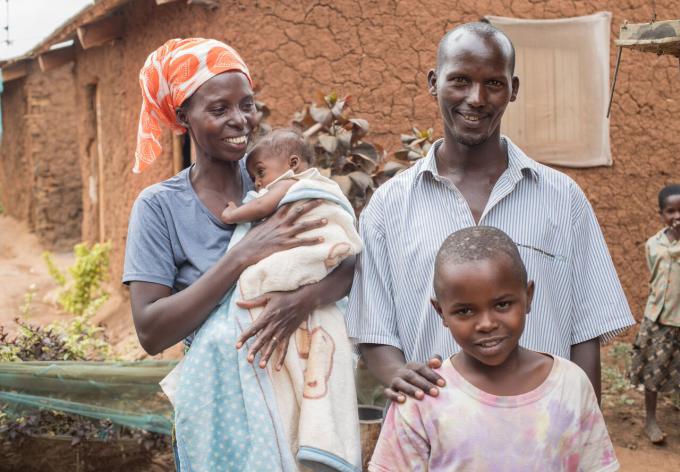Dreams come true: Burundian unaccompanied refugee children get foster families.
By Elysee Niyigena & J Christophe Ndikubwimana

“I have a family and someone I call mother. I’m happy regardless of the existing challenges like having left my family and became a refugee. We have people who care for us, help us attend schools and get other necessary supports. I thank Save the Children for their support to us”, said Micheline, who represented the 2, 574 unaccompanied children placed into alternative care during the Day of African Child (DAC) celebration at Mahama camp.
“I’m excited to be part of the children celebrating DAC. Two years ago, I didn’t think I would smile like other children. But now I am glad to be in,” added Micheline.
Like many others, Micheline escaped violence from her home country Burundi when hell broke loose in her village, homes were burned down, people killed, fearful and helpless, she followed other refugees to Rwanda with no family member.
“It was in the middle of the night when I heard people banging the door of our house, shouting loudly telling us to open or if not they would break in by force. Very scared, I decided to escaped through the window”, says Micheline, during the Day of African Child (DAC) celebrations held in Mahama camp for Burundians.
Around the country, Save the Children and other partners celebrated the achievements so far realized in child rights and protection. In the streets of the camp, beautiful voices of children promoting their rights through singing and drumming were heard.
In Burera district, DAC was celebrated in Kinoni sector bringing together children, local leaders and parents where children expressed disappointment to some parents who still hide children with disabilities, instead of enrolling them in schools.
“On this day, we want to express our disappointments in some parents still with a mentality of being ashamed of allowing their children with disabilities. They forbid them going to school”, said Ambazimana Marie Josee, 12-year-old in primary six.
Josee added that parents with such beliefs have to know that children with disabilities are children like others. “Children with disability are able. There is no shame in having a child with disability. The shame is in not sending them to school”.
At the event, different partners and the government promised to continue the spirit of addressing issues affecting children and called on parents to be a part of child rights movement by sending their children to school without discriminating those with disabilities.
* after a name indicates that the name has been changed to protect identity.
 Rwanda
Rwanda